Devesh Batra
Obscured but Not Erased: Evaluating Nationality Bias in LLMs via Name-Based Bias Benchmarks
Jul 22, 2025Abstract:Large Language Models (LLMs) can exhibit latent biases towards specific nationalities even when explicit demographic markers are not present. In this work, we introduce a novel name-based benchmarking approach derived from the Bias Benchmark for QA (BBQ) dataset to investigate the impact of substituting explicit nationality labels with culturally indicative names, a scenario more reflective of real-world LLM applications. Our novel approach examines how this substitution affects both bias magnitude and accuracy across a spectrum of LLMs from industry leaders such as OpenAI, Google, and Anthropic. Our experiments show that small models are less accurate and exhibit more bias compared to their larger counterparts. For instance, on our name-based dataset and in the ambiguous context (where the correct choice is not revealed), Claude Haiku exhibited the worst stereotypical bias scores of 9%, compared to only 3.5% for its larger counterpart, Claude Sonnet, where the latter also outperformed it by 117.7% in accuracy. Additionally, we find that small models retain a larger portion of existing errors in these ambiguous contexts. For example, after substituting names for explicit nationality references, GPT-4o retains 68% of the error rate versus 76% for GPT-4o-mini, with similar findings for other model providers, in the ambiguous context. Our research highlights the stubborn resilience of biases in LLMs, underscoring their profound implications for the development and deployment of AI systems in diverse, global contexts.
Conformal Predictions for Longitudinal Data
Oct 04, 2023
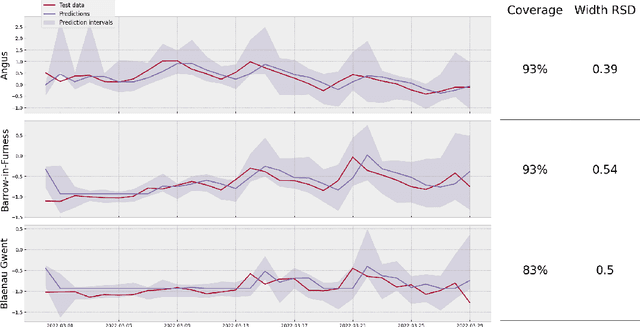

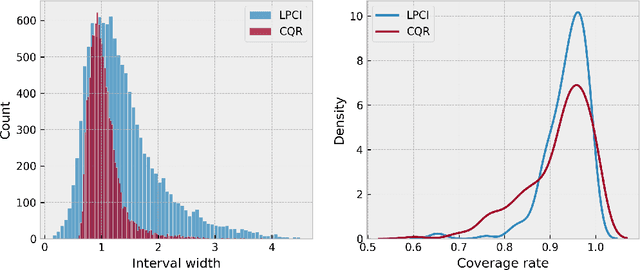
Abstract:We introduce Longitudinal Predictive Conformal Inference (LPCI), a novel distribution-free conformal prediction algorithm for longitudinal data. Current conformal prediction approaches for time series data predominantly focus on the univariate setting, and thus lack cross-sectional coverage when applied individually to each time series in a longitudinal dataset. The current state-of-the-art for longitudinal data relies on creating infinitely-wide prediction intervals to guarantee both cross-sectional and asymptotic longitudinal coverage. The proposed LPCI method addresses this by ensuring that both longitudinal and cross-sectional coverages are guaranteed without resorting to infinitely wide intervals. In our approach, we model the residual data as a quantile fixed-effects regression problem, constructing prediction intervals with a trained quantile regressor. Our extensive experiments demonstrate that LPCI achieves valid cross-sectional coverage and outperforms existing benchmarks in terms of longitudinal coverage rates. Theoretically, we establish LPCI's asymptotic coverage guarantees for both dimensions, with finite-width intervals. The robust performance of LPCI in generating reliable prediction intervals for longitudinal data underscores its potential for broad applications, including in medicine, finance, and supply chain management.
An Introduction to Machine Unlearning
Sep 02, 2022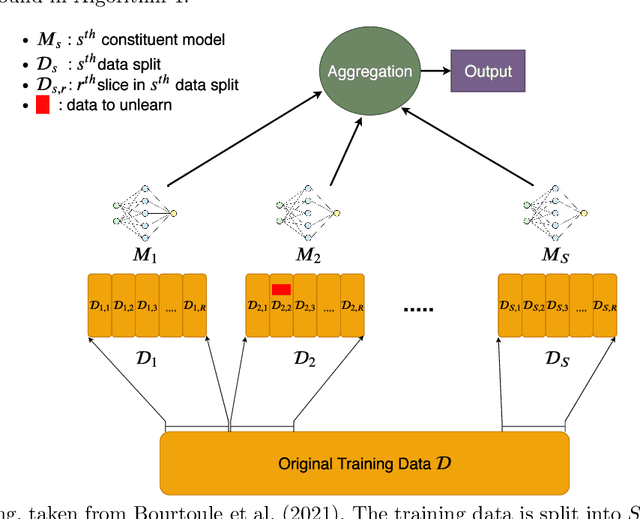
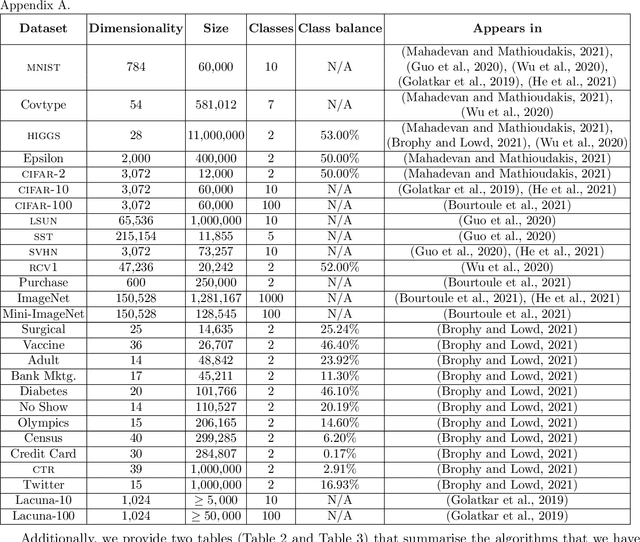
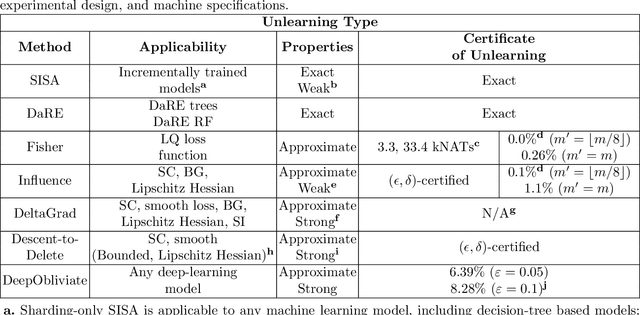
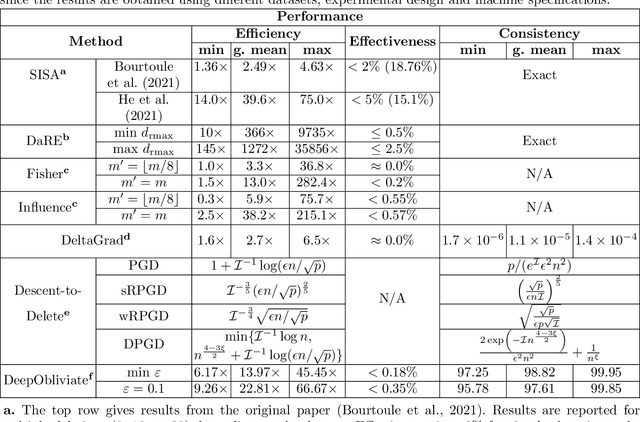
Abstract:Removing the influence of a specified subset of training data from a machine learning model may be required to address issues such as privacy, fairness, and data quality. Retraining the model from scratch on the remaining data after removal of the subset is an effective but often infeasible option, due to its computational expense. The past few years have therefore seen several novel approaches towards efficient removal, forming the field of "machine unlearning", however, many aspects of the literature published thus far are disparate and lack consensus. In this paper, we summarise and compare seven state-of-the-art machine unlearning algorithms, consolidate definitions of core concepts used in the field, reconcile different approaches for evaluating algorithms, and discuss issues related to applying machine unlearning in practice.
 Add to Chrome
Add to Chrome Add to Firefox
Add to Firefox Add to Edge
Add to Edge